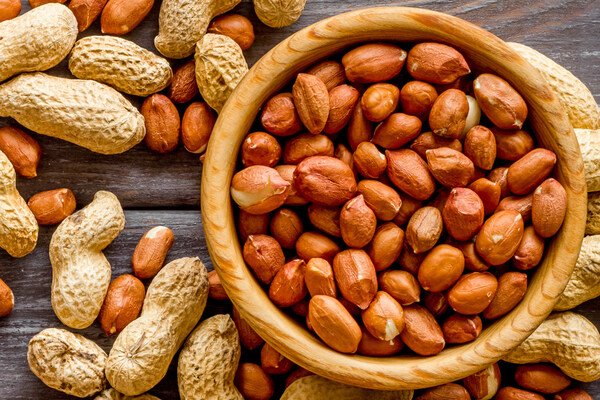Saturday, 17 January 2026
Peanuts provide much-needed protein for GLP-1 users
Peanuts and peanut butter can be a key dietary element for GLP-1 users because peanuts contain significant amounts of protein, fibre and healthy fats Today, an increasing number of Americans are taking GLP-1 medications…

Peanuts and peanut butter can be a key dietary element for GLP-1 users because peanuts contain significant amounts of protein, fibre and healthy fats
Today, an increasing number of Americans are taking GLP-1 medications to combat obesity and type 2 diabetes, which are serious health issues. GLP-1s deliver several benefits, including reduced appetite, better weight management and improved blood sugar control. However, there can be significant side effects.
“While GLP-1s can promote weight loss, some research shows that up to 60 per cent of the loss can come from lean mass rather than fat,” says Samara Sterling, Ph.D., a nutrition scientist and director of research for The Peanut Institute. “That’s why it’s vitally important for users to closely monitor their diet to ensure they’re eating enough nutrient-rich foods, including those that are healthy sources of protein. Specifically, protein supports tissues in the body, including muscles, bones, cartilage, skin and blood.”
That’s where peanut products come in. Peanuts and peanut butter can be a key dietary element for GLP-1 users because peanuts contain significant amounts of protein, fibre and healthy fats. Research suggests those three macronutrients can help support the body’s natural GLP-1 response. In addition, the Cleveland Clinic recently shared that “eating peanuts may help you maintain a healthy weight and avoid obesity.”
According to the United States Department of Agriculture Nutrient Database, a single serving of peanuts (about 1 ounce) packs seven grams of protein, which is more than any other nut. In addition, peanuts are a plant-based protein, and a long-term study found that swapping one daily serving of animal protein for plant protein (like peanuts or peanut butter) decreases the risk of developing type 2 diabetes.
Another benefit of peanuts is that they are packed with 19 vitamins and minerals, including niacin, vitamin E and magnesium. Peanuts provide 25 per cent of the recommended daily allowance (RDA) of niacin, which aids skin and nerve function and the digestive system and protects against Alzheimer’s disease and cognitive decline.8
On top of that, peanuts are an excellent source of vitamin E, an antioxidant that supports immune function and is a “hard-to-get” nutrient for men and women. In addition, per serving, peanuts deliver 12 per cent of the RDA of magnesium, which has been found to aid blood sugar, heart rhythm, the immune system, blood pressure and even bones. Magnesium intake is also associated with reduced inflammation and a reduced risk of metabolic syndrome and type 2 diabetes.
Technology
Bringing PFAS testing to the point of need
Jan 16, 2026 | Australia
Study finds Magtein enhances memory, reaction time and heart health markers
Jan 15, 2026 | Company News
Walmart and Google turn AI discovery into effortless shopping experiences
Jan 15, 2026 | Company News
Food Testing
Bringing PFAS testing to the point of need
Jan 16, 2026 | Australia
IMCD opens a Food & Nutrition Laboratory in Cologne
Jan 08, 2026 | Company News
La Trobe University Develops Portable Biosensor to Detect PFAS in Water
Jan 08, 2026 | Australia
More Popular
Amar Pure Gold to invest Rs 250 Cr in Agro-Food Park in Himachal Pradesh
Jan 16, 2026 | Company News
Franke launches new A Line in Southeast Asia and opens regional flagship showroom in Singapore
Jan 16, 2026 | Beverages
EXBERRY plant-based colour supplier GNT earns top sustainability award
Jan 16, 2026 | Awards





